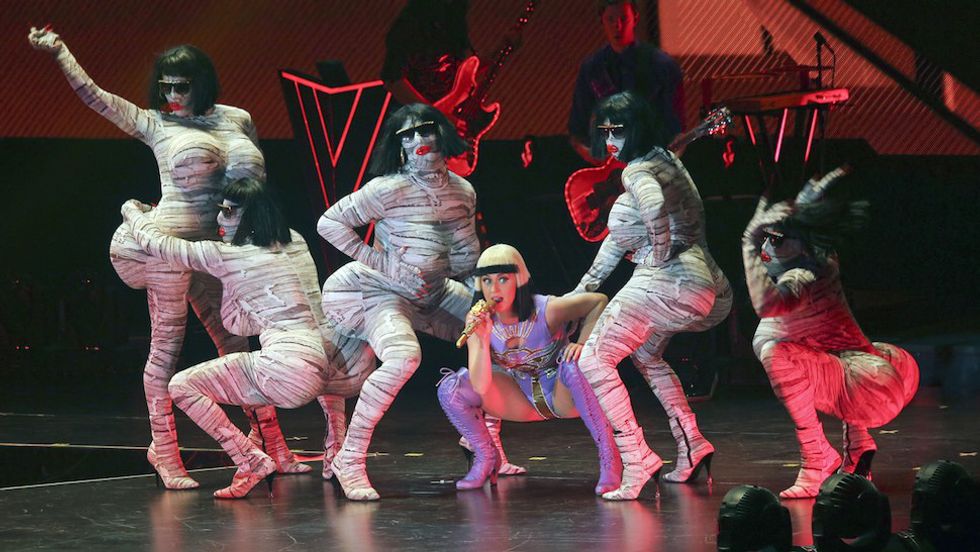Cultural Appropriation or Appreciation? The question has been debated all over media lately. The most recent issue being MTV UK’s recent re-naming of classic cornrows to “boxer braids.” Cornrows have been around forever, serving as both a trendy and protective style for black men and women everywhere. The examples continue through the last couple of years, ranging from Miley Cyrus’ supposed ‘creation’ of twerking, Kylie Jenner’s lip change, and basically everything Katy Perry does. I mean, honestly. In what world is this not insensitive?:
She’s dressed as an ancient Egyptian, with backup dancers dressed as mummies with comically large butts. Some need to be reminded that Egyptians are Africans, and so this is literally making fun of the African body type.
When considering whether or not something is culturally appropriated or appreciated, the main issue is whether cultural exchange ensued. When mimicking something valued by another culture, it is important to both understand and respect its significance to that culture. Without doing so, the cultural appropriator is only acting in a way that reaps fragmented benefits from the original culture without appreciating the deep history behind it. The appropriation also marginalizes the culture — like the boxer braids, for example. Many black women are not allowed to wear braids to work, because it is deemed unprofessional. Meanwhile, MTV’s covering of the “new trend” idolizes the white women featured wearing them.
Recently, I was watching “The Nightmare Before Christmas” by Tim Burton with one of my friends. The plot centers around Jack the Skeleton, who is a leading figure in Halloween Town. He grows tired of celebrating Halloween and when he stumbles upon Christmas Town, he decides that not only will he be the ambassador who brings Christmas to Halloween Town, he will do it better than Christmas Town.
When trying to figure out exactly how to bring Christmas to Halloween town, he doesn’t know how to begin. Instead of going back to Christmas town and learning how Santa Claus and the citizens celebrate the holiday, he decides to make Christmas his own. In his song “Jack’s Obsession,” he talks about Christmas, saying:
“Or perhaps it's really not as deep
As I've been led to think
Am I trying much too hard?
Of course! I've been too close to see
The answer's right in front of me
Right in front of me…
You know, I think this Christmas thing
It's not as tricky as it seems
And why should they have all the fun?
It should belong to anyone
Not anyone, in fact, but me
Why, I could make a Christmas tree
And there's no reason I can find
I couldn't handle Christmas time
I bet I could improve it too
And that's exactly what I'll do
Hee,hee,hee
Eureka! I've got it!”
He begins the song by saying that the value of Christmas is probably simpler than he thought it to be — mainly because he cannot understand it as is. Disregarding his lack of comprehension of the value of Christmas and what it means to those who celebrate it, Jack doesn’t understand why it has been restricted to just Christmas Town. Instead of understanding it as a regional and cultural value, he directly assumes that something has been purposely held away from him. He finishes his song by deciding that not only will he blindly hold Christmas in Halloween Town, but stipulates that he would make it better than Christmas Town ever could.
So by making Christmas his own, he is appropriating the culture because not only does he not take the time to understand it, but he also gives no credit to the original culture. He “improves” upon it and is praised in his home town, while Santa is denounced and held captive for trying to practice it.
That is cultural appropriation.























